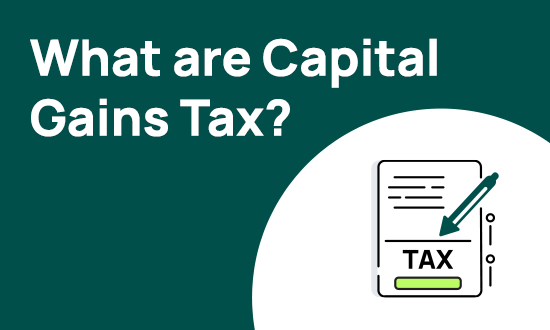Capital Gains Tax Explained: How it Affects Your Investments and Financial Planning


Capital gains tax is a crucial component for effective financial planning for your future. If you are looking forward to make the most out of your investments, understanding the intricacies of capital gains tax will help to maximise your gains. Capital gains tax increases your total tax liability and hence brings down the overall returns on investment in various assets.
As per the Income Tax Act, 1961, the gains from various assets like stocks, mutual funds, bonds, debentures and real estate, among others, attract tax at different rates. This is known as capital gains tax. The investment duration and the asset type determine the capital gains tax amount you have to pay.
The capital gains tax is applicable to both the individual taxpayers and the businesses.
As the name suggests, capital gains tax is the tax levied by the government on the profit made from the sale of an asset within a specified period. If you sell an asset at a value higher than the investment amount or the purchase price, capital gains tax is levied on the profit you make. To put it simply, you have to pay tax on the gains you make from the sale of an asset.
Depending on the duration of holding an asset, the gains are classified as Long-term Capital Gains (LTCG) and Short-term Capital Gains (STCG). Both attract taxes at different rates based on the asset class.
STCG:Short-term capital gains tax is applied on the gains from an asset sold within one year of investment or purchase. The tax rate may vary from asset to asset.
LTCG:Long-term Capital Gains tax is levied on the gains made from an asset sold after 3 years of purchase. The tax rates are decided based on the asset type like equity, bonds and real estate, among others.
The government made some major changes to capital gains taxes across asset classes in the Full Budget presented in July 2024. Finance Minister Nirmala Sitharaman also announced a few minor changes to the capital gains tax for certain assets in Budget 2025.
The new Income Tax Bill, 2025, recently tabled in the Lok Sabha proposed minor changes to capital gains tax on investments in specific assets like mutual funds and ULIPs, while keeping the overall tax structure unchanged.
In Budget 2024, the government introduced a simplified capital gains tax structure for assets under two distinct categories- listed securities and unlisted securities. The Finance Minister increased the STCG on equity mutual funds to 20% from 15% and the LTCG to 12.5% from 10%. The new tax rate was applicable from July 23, 2024.
Here are the key changes proposed for different asset classes in Union Budget 2025. These capital gains tax rates will come into effect from April 1, 2026.
Unit Linked Insurance Plans (ULIPs):LTCG of 12.5% for ULIPs where annual premium exceeds Rs.2.5 lakh.
Listed equity shares and listed equity MFs:A 12.5% LTCG without indexation benefit will be applicable on gains from assets sold after one year. An exemption of Rs.1.25 lakh per annum on the gains will be allowed. On the other hand, STCG will be applicable at flat 20%.
Listed tax-free bonds and debentures:Gains from assets sold after 12 months will attract LTCG at 12.5% without indexation benefit. STCG will be levied at the taxpayer’s slab rate.
Debt mutual fund:If purchased before April 1, 2023, LTCG will be levied at 12.5% without indexation. For investments made after April 1, 2023, the gains will be taxed at applicable slab rates without the benefit of indexation. STCG will be applicable as per tax slab irrespective of investment date.
Gains from unlisted shares for a holding period of more than 24 months will attract LTCG as 12.5% without indexation, while STCG will be levied at slab rates.
On the other hand, unlisted debentures and bonds will attract LTCG and STCG at applicable tax slabs without indexation benefit. The holding period for LTCG is 24 months.
For gains from real estate assets, acquired before July 23, 2024, the LTCG will be applicable at 20% with indexation or at 12.5% without indexation. The holding period is 24 months for LTCG purposes. However, LTCG will be applicable at 12.5% without indexation for properties purchased after July 23, 2024. STCG will be levied at the applicable tax slab of the taxpayer.
This Article is for information purpose only. The views expressed in this Article do not necessarily constitute the views of Kotak Mahindra Bank Ltd. (“Bank”) or its employees. The Bank makes no warranty of any kind with respect to the completeness or accuracy of the material and articles contained in this Article. The information contained in this Article is sourced from empaneled external experts for the benefit of the customers and it does not constitute legal advice from the Bank. The Bank, its directors, employees and the contributors shall not be responsible or liable for any damage or loss resulting from or arising due to reliance on or use of any information contained herein.